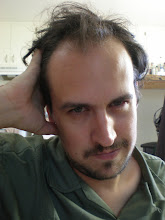Freedom of Information: free access to it, the ability to disseminate it for free. It's a basic concept, sometimes irregularly applied, sometimes controversial, but at the heart of what makes this country, and democracy in all forms, worth appreciating despite myriad blemishes.
This question is complicated in the Internet Age, with the rise to prominence of organizations like Wikileaks, LulzSec, and Anonymous. The latter is a hacker coalition that, it is reported in today's paper, hacked into US police websites and posted data, with the intent to 'embarrass, discredit and incriminate police officers across the US."
Are there probably some bits of corruption in law enforcement, some officers who maybe shouldn't be in a position of power, some things that public should know? Certainly, just as there are corrupt hackers, identity thieves, people in corporations who do bad things. Just as there are hackers who are benevolent, who are dedicated to countering identity thieves and helping stop viruses; just as there are law enforcement officers who are committed to doing the right thing.
Where secrecy reigns, such as in Syria, where communication with the town of Hama is being limited, and where an American I know who was teaching in Syria had his activities monitored, a despotic government is killing innocent people. This is where Twitter and Facebook and other media served a good purpose in the Arab Spring; it is harder for governments to get away with bad things when the rest of the world is watching. This is why Wikileaks and other hacker groups who can get access to information despite obstacles can be strong defenders of the principle of freedom of information.
But there is a fine line between being a freedom fighter and just being an asshole. This group Anonymous apparently posted police data regarding ongoing investigations. This could impact law enforcement's ability to do what they are supposed to do, i.e., enforcing the law, serving and protecting, etc. Say what you will about the corruption of law enforcement, that does not justify throwing extra obstacles in their path. That logic just doesn't work: they aren't out to protect us, there are some bad apples in the barrel, so let's mess up their ability to work to protect us.
So maybe, you would argue, this was unintentional. They were just so devoted to the principle of freedom of information that they didn't sift through the data first to judge what should and should not be posted. Maybe. But they also posted five credit card numbers they used to make 'involuntary donations.' They stole money from the police. Guess who pays those credit card bills for the police?
This is essentially the same issue as I found with
last month's protest at a BART station. In that protest, I'm sure the bulk of the protesters were sincere in wanting to draw attention to the issue of police violence. It takes courage to speak up when you see abuses of power. However, as I said before, there was collateral damage to the lives of ordinary people that could have been avoided, and I would suspect that many of the protesters were in it for the surge of adrenaline, for feeling like they could make a lot of noise and yell at people and just cause a disruption.
With an issue like Freedom of Information, there must be some selectivity. Regardless of notions of what constitutes national security--a notoriously vague notion rife with conflicting special interest--there is the question of individual privacy, which is a value just as much at the heart of our strength. Is that a contradiction, trying to balance the value of privacy with the value of free information? As Walt Whitman would say, "Do I contradict myself? Very well, then, I contradict myself; I am large -- I contain multitudes."
There is a key distinction between whether you can do something and whether you should. Principles are subject to context; if you are going to say you are trying to eradicate corruption, don't do it while damaging the people you say you are protecting. Otherwise, it becomes clear that you are just an asshole showing off what you can do.
Labels: corruption, freedom of information, hackers, integrity, Internet age

